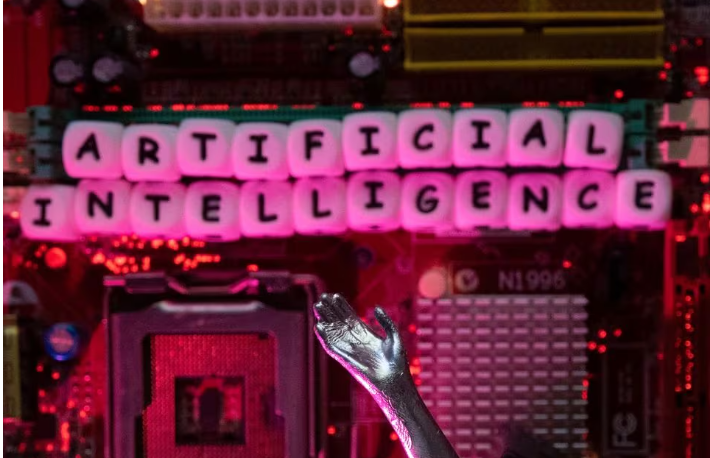Introduction:
The latest progress in the realm of artificial intelligence (AI) development undertaken by North Korea has attracted global scrutiny, prompting worries about the expanding technological capabilities of this secretive nation. An investigation led by Hyuk Kim offers valuable insights into North Korea’s ventures in AI, spanning various domains, including responses to COVID-19, nuclear reactor safety, wargaming simulations, and government surveillance. Despite grappling with international sanctions linked to its nuclear weapons program, North Korea demonstrates unwavering determination in its quest for state-of-the-art AI technology. The nation presents this pursuit as a strategic investment aimed at strengthening its digital economy.
AI in the Time of Pandemic:
The worldwide effort to combat the COVID-19 pandemic has led nations across the globe to employ technology in their responses. Despite its isolated nature, North Korea has actively utilized artificial intelligence (AI) to construct models for assessing the proper use of masks and prioritizing clinical symptoms that indicate infection. This unanticipated application of AI during a public health crisis underscores the flexibility of technology, even in regions characterized by political seclusion.
Nuclear Reactor Safety:
One of the key aspects of North Korea’s progress in artificial intelligence (AI) is its focus on enhancing the safety of nuclear reactors. As outlined in the report, North Korean scientists have embarked on research to incorporate AI for the purpose of maintaining the security and stability of nuclear reactors. With recent reports suggesting the operation of a new reactor at the Yongbyon nuclear complex, concerns about the potential diversion of plutonium for nuclear weapons gain heightened importance. The intersection of AI and nuclear capabilities introduces complex considerations regarding international security and raises questions about the effectiveness of existing measures to prevent the spread of nuclear weapons.
AI’s Role in Wargaming Simulations:
The report further illuminates North Korea’s interest in utilizing artificial intelligence (AI) for the purpose of conducting wargaming simulations. The application of machine learning is employed to gain a more profound understanding of operational environments concerning potential adversaries, marking a strategic focus on military applications. The challenges stemming from North Korea’s engagement with AI-driven wargaming simulations transcend regional security concerns, encompassing wider considerations about the role of AI in military strategy and the resolution of conflicts.
Collaborations and Concerns:
Notably, experts in North Korea specializing in artificial intelligence (AI) have established collaborations with foreign scholars, including those from China. This cross-border partnership raises concerns, particularly regarding the efficacy of existing sanctions. The international community is confronted with the dual challenge of monitoring North Korea’s technological advancements and navigating the complexities of imposing sanctions on a nation actively participating in AI collaborations.
The Digital Economy and Restricted Communications:
North Korea depicts its exploration of artificial intelligence (AI) as a strategic initiative to enhance its digital economy. However, the authoritative government’s rigorous restrictions and surveillance of communication technology within the nation present unique challenges. The delicate balancing act between technological progress and centralized control is apparent as North Korea embraces the digital age.
Cybersecurity Implications:
Seoul’s intelligence agency has observed signs indicating that North Korean hackers are using generative AI to seek out potential targets and the technologies required for hacking. While there is currently no evidence of AI being employed in actual cyberattacks, the National Intelligence Service remains alert. The shifting landscape of cyber threats driven by AI introduces an added layer of complexity to the geopolitical dynamics in the region.
Conclusion:
North Korea’s venture into AI development presents a multifaceted challenge for the global community. Striking a balance among concerns regarding nuclear proliferation, military applications, and collaborations with foreign scholars, while upholding the sovereignty of nations, necessitates nuanced diplomatic efforts. As the world grapples with the ramifications of North Korea’s pursuits in AI, an active and cooperative approach is vital to navigate the intricacies of technology, security, and geopolitics in the 21st century.


